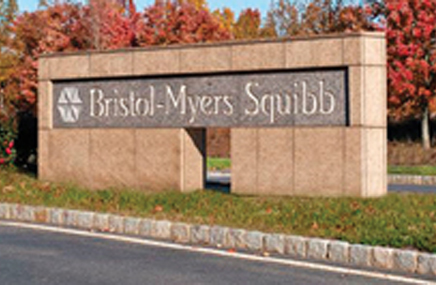Bristol-Myers Squibb has joined the ranks of think-smaller companies. The company announced Friday that it is “evolving its strategic focus in R&D.” This move is in step with peers such as Merck, which is laying off 8,500 as it pursues therapeutic spaces it can dominate, Novartis’s shuttering of a California research site, and Shire’s move to cut R&D jobs in Basingstoke, UK.
The company’s evolution means the BMS is backing away from new hepatitis, diabetes and neuroscience discoveries. BMS says it will continue with late-stage treatments in these areas and will pursue “lifecycle opportunities” in these areas. In other words, seeking out expanded indications for existing and late-stage drugs remains on the table, even if its overarching R&D focus excludes these very items.
Merck is following a similar path, and part of the reason is that the money for late-stage drugs has already been spent. If a company is waiting for data to roll in, there is no benefit to walking away from an opportunity in which the major investment has already been made.
BMS told MM&M that the reorganization will not have an impact on the firm’s sales teams.
Bristol-Myers said it is increasing its investment in immuno-oncology. The field has been top-of-mind of late: Leerink Swann analyst Howard Liang wrote in a Monday research note that the field “is causing a mind shift in the industry,” and that some of the chatter at the November Society of Immunotherapy for Cancer conference centered around how some companies have not just moved away from, but actually stopped clinical trials for signal transduction inhibitors in favor of immuno-oncology products.
Bristol-Myers Squibb’s reputation in this field has some analyst support. Leerink’s Seamus Fernandez wrote in a November 5 research note—two days before BMS announced its new strategy—that immuno-oncology is not just transformative, but that BMS is set to lead. Fernandez wrote that the company was early in the game with its exploration of PD-1 nivolumab and seeking out combination opportunities with its melanoma drug Yervoy. Fernandez says this is in addition to expanding its immuno-oncology reach through a partnership with Innate Pharma. According to a Fernandez, BMS could have $12 billion in immuno-oncology sales by 2025.
In a November 1 research note, Fernandez also noted that key opinion leaders were big believers in the field, saying at last month’s Sydney, Australia World Lung Conference that they expect PD1-PDL1’s to “raise the bar for targeted lung cancer agents.” Fernandez estimated that the lung cancer immuno-oncology market could hit $10 billion in seven years.








